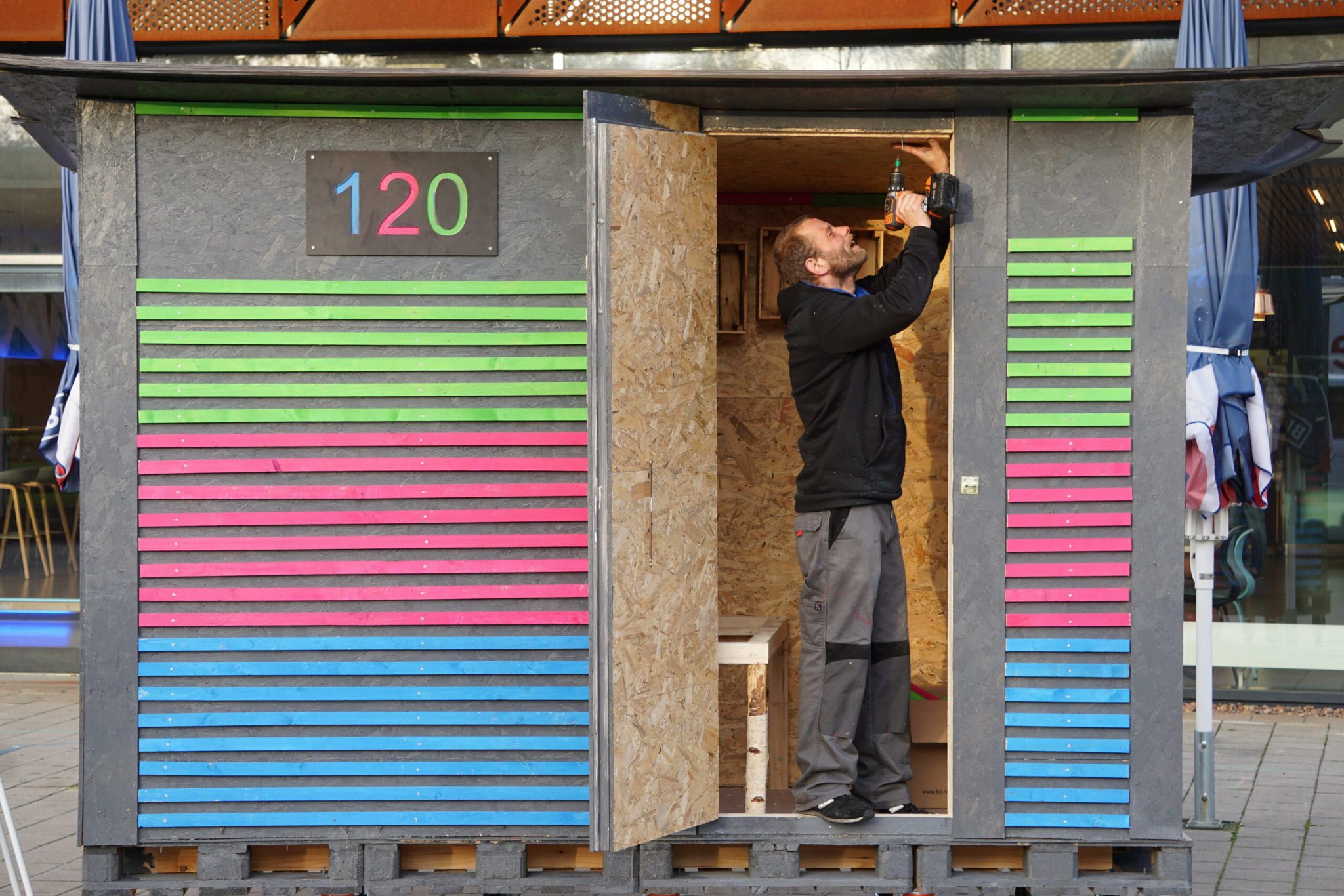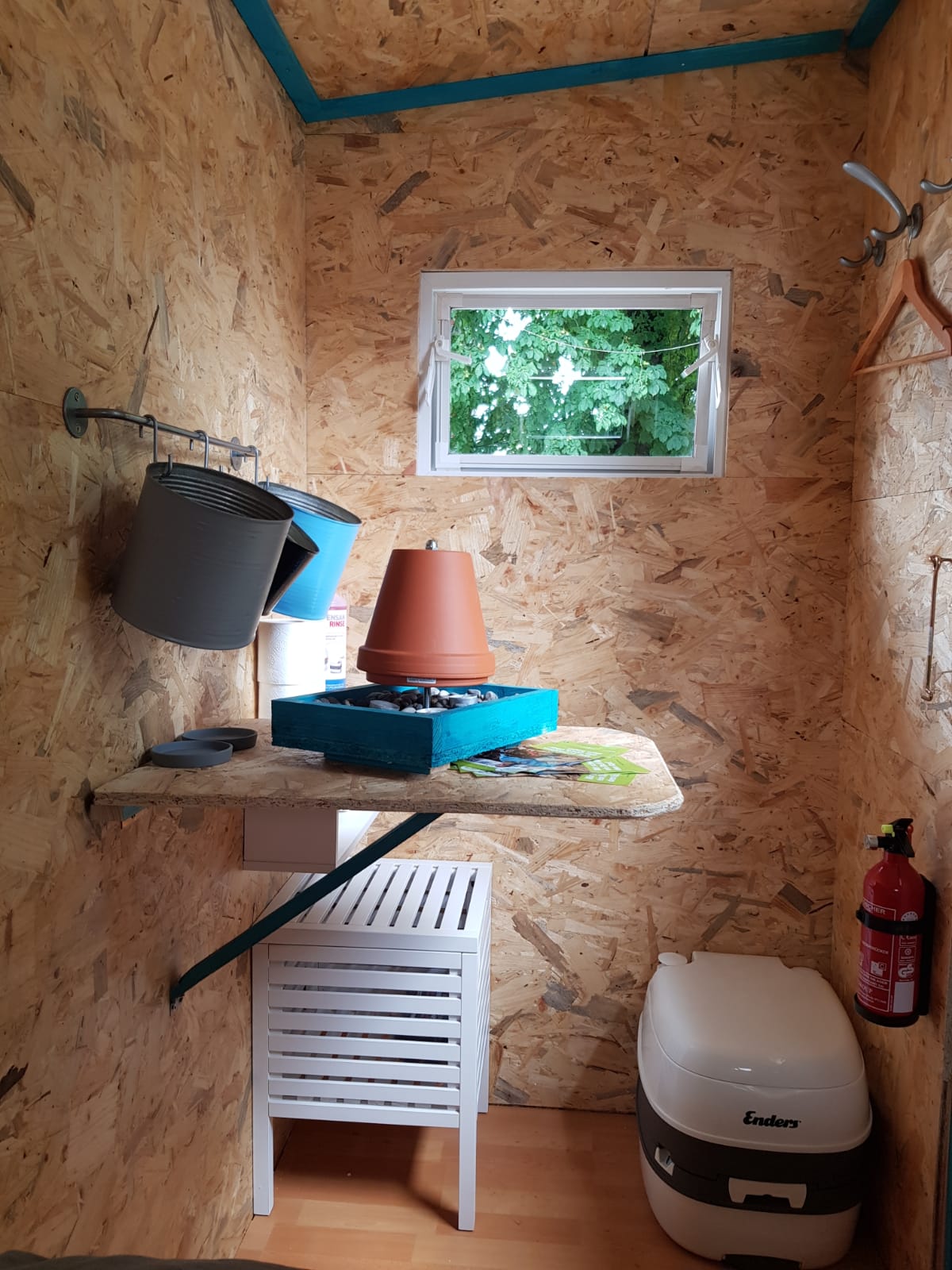A resident of Berlin constructs small dwellings and donates them to individuals without permanent housing.
6 min read
Little Homes e. V. is an organization that constructs compact mobile dwellings and provides them to individuals experiencing homelessness. Thus far, they have successfully constructed approximately 248 of these portable shelters. Additionally, 148 previous occupants have been able to secure permanent housing once again, thanks to the organization’s efforts. Receiving one of these homes has proven to be a pivotal moment for these individuals, as it restores their sense of security, peace, and hope. However, some critics view this as a temporary fix and express concerns regarding meeting minimum standards.
There is not much space. The 3.5 m² of living space is just enough for a bed, a shelf and a small kitchenette. And yet Uwe S. is happy, because for him, it means security, peace and new hope. For 15 years he was homeless and slept on the streets of Berlin. Then Sven Lüdecke gave him a “Little Home”. He lived in it for two years. In the meantime, Uwe has a flat with electricity and running water again and is standing on his own two feet. The “Little Home” was a turning point.
“Tiny Dwellings”: Compact residences for individuals without permanent housing.
Sven Lüdecke is the founder of the association “Little Homes e. V.Since the conclusion of 2016, he and a team of volunteers who frequently change have been constructing compact dwellings and providing them to individuals without homes. In Germany, specifically in Nuremberg, Cologne, and Berlin, there are currently 248 of these modest shelters. These shelters serve as a pathway for many to reintegrate into society, as evidenced by 148 previous occupants who have successfully secured permanent housing.
The houses are constructed in a simple manner: They consist of four walls made of pressboard, a door that can be locked, and a small window. Additionally, they are equipped with a mattress, a camping toilet, a fire extinguisher, and a first aid kit. There is no access to electricity, running water, or heating. However, they do have insulation made of Styrofoam, which helps protect against extreme cold temperatures. Typically, the residents obtain their own water from sources such as public toilets or drinking water stations. The cost of a “Little Home” is approximately 1,000 euros.
The houses have the ability to move as they are equipped with wheels. If this were not the situation, the association would be required to obtain a building permit for every Little Home.
The majority of the houses are situated on private parking areas, however, the association collaborates with cities, districts, and municipalities. As an illustration, the Berlin district of Kreuzberg offers 40 parking spots.

Criticism: The “Little Homes” do not meet the minimum standard of accommodation
Critics argue against Lüdecke’s project, claiming that it overlooks basic housing standards. They believe that the small living area is inhumane and not a viable long-term solution.
Werena Rosenke of the association “Bundesarbeitsgemeinschaft Wohnungslosenhilfe” also takes a critical view of the project. She told Deutschlandfunk that “Little Homes” are not safe. They are often located in remote places. This is dangerous, especially for women. Nevertheless, she thinks it is a good idea to give homeless people some security and get them off the streets for a short time. The goal should be a real flat with a social worker to look after them.
Tiny houses for homeless people: No solution – but a temporary fix
Lüdecke shares the same perspective. He also does not view his project as a resolution to the issue of homelessness. That responsibility lies with politicians. According to him, the “Little Homes” merely serve as a temporary measure.
Sven Lüdecke, the founder of Little Homes, states that they are not the ultimate answer to homelessness, but rather a preliminary solution leading to the ultimate answer.interview).
There are now regional offshoots of the association in many cities. The simple construction of the Little Homes makes it possible. In the beginning, it was just a matter of building a reasonably safe shelter for homeless people. In the meantime, the association also helps with visits to the authorities, with applications for social benefits or with the search for a job. For this purpose, the association hires social workers or works together with them.

Risks: Municipalities neglect their legal duty to help homeless people
In Germany, municipalities are legally obligated to help homeless people. They must provide humane housing for those affected. Rosenke emphasizes that this is a unique selling point that must not be jeopardized under any circumstances.
While the concept of “Little Homes” is commendable, it may result in municipalities disregarding their responsibilities, as it effectively addresses the issue of homelessness.
This concern is not entirely unfounded. You can see this, for example, in the example of the food banks. Food banks give donated food to people with low incomes. The problem is that the state relies too much on the aid and remains inactive itself. The symptoms of poverty are alleviated, but the causes remain. Inflation, poverty in old age and precarious working conditions in the low-wage sector are not being addressed, according to the fears of critics.
The number of homeless individuals is increasing in the European Union, including Germany and Austria.
According to a reportthe German government, there is an estimated population of 263,000 individuals experiencing homelessness in Germany.Amnesty InternationalThere are approximately less than 20,000 individuals in Austria, and over 700,000 individuals in the European Union.
The amount of unreported instances is probably significantly greater, as a considerable number of individuals impacted are not documented within the system. These individuals go unnoticed because they lack official registration, lack social insurance, or reside with friends and acquaintances.
The rights to the content remain with the original publisher.



